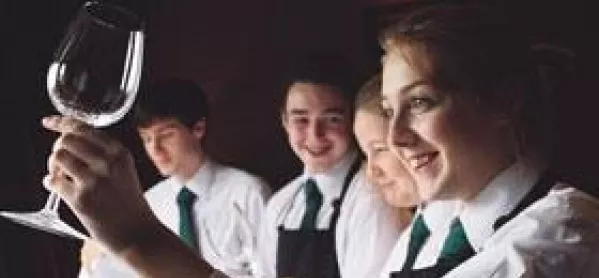City aims for specialist status
Glasgow City Council pursues partnerships in bid to raise its game in education
Share
City aims for specialist status
https://www.tes.com/magazine/archive/city-aims-specialist-status

Glasgow’s 29 secondary schools are being encouraged to develop specialisms in a package described by one headteacher as “aspirational and inspirational”.
The plans, which go before the council next week, will involve the city’s nine colleges and three universities in a bid to extend vocational options and provide more opportunities for gifted and talented pupils.
This could lead to the schools being given specialist status, but there are no plans to replicate the model of nationalist specialist schools such as the city’s Knightswood School of Dance or Bellahouston School of Sport. And Glasgow will not follow the city academy model adopted in England or North Lanarkshire’s enhanced comprehensive model, says Margaret Doran, the council’s executive director of children and families.
Instead, the specialist status for schools would be developed as part of the council’s vision of a “city-wide prospectus” involving stronger partnerships between schools, colleges, universities, Culture and Sport Glasgow, and the voluntary sector. Each school will be known as a “centre of excellence for partnership”, a status acquired after three years of improvement in a range of activities.
Headteachers have been consulted and are understood to be supportive. “We have been sailing through uncharted waters up till now,” one commented. “This gives us an agenda we can believe in, but it still needs to be firmed up.”
Gordon Matheson, the council’s executive member for education and social renewal, said: “Our ambition is for Glasgow to become a world-leading centre for education - and we can do it. We have got the skills and dedication.”
In another element of the prospectus, S5-6 will be known as a “fifth and sixth year college”, in a bid to recognise the different status of these years. The aim is to give S5-6 pupils the opportunity to learn in a range of difference environments - school, college and the workplace.
The authority also wants to carry out a review of the management structures to bring them closer to pupils. This proposal was built on the theory of the Human Scale Education Movement, which promotes smaller learning communities offering a more personalised relationship with individual pupils, Ms Doran said. She also wants to see closer tracking and monitoring of pupils, and a greater emphasis on the “whole child” through education, care and health. One of the council’s targets will be for all pupils to achieve their reading age by P3.
Glasgow also wants to pilot “learning in a context” from S1-6 as part of its implementation of A Curriculum for Excellence. This project-based programme will involve active learning in the classroom and outside it, such as places of work and interest.
You've reached your limit of free articles this month. Subscribe for £1 per month for three months and get: